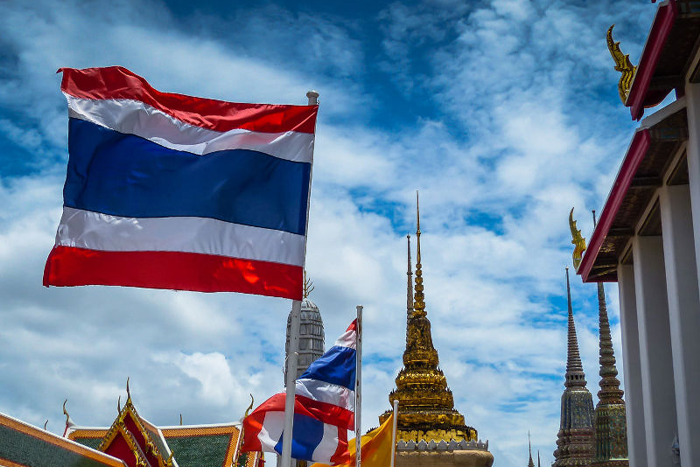Chairman’s Note
Private and Confidential
For SIIA Corporate Members and Advisors
July 2024
Indonesia’s Government Transition
As I share these viewpoints, there are three important caveats. First, the circumstances are fluid as many are maneuvering to secure their interests. Secondly, these perspectives come from speaking to a limited number of observers and participants, and not to the key and principal players. Lastly, as a think tank, the SIIA aims to engage with the incoming government after its official inauguration in October, as well as other stakeholders. As such, while this note primarily reflects perspectives of those I met, and not rather my personal opinions, I kindly request that this note be kept confidential.
1. A Different Kind of President: Continuity is the promise, especially with Jokowi’s son to serve as Vice-President. However, it is clear the incoming President Prabowo Subianto has a different background, personality and interests, and is likely to play a different role as President. Some predict that given his capabilities and self-confidence, the new President will take more initiatives directly and on his personal initiative, especially on defence and foreign affairs, and also the economy. These and other strategic priorities such as resources and agriculture for food security will likely be put under the auspices of new agencies reporting directly to the President’s office. So will the taxation and revenue agencies.
2. Inner Core and Grand Coalition: Many see a preference to have a more centralised command structure, given Prabowo’s military background. A small inner circle that will be trusted to keep close is being identified including those who have been associated with the family or Suharto’s New Order from the past; one such name is former General and Deputy Defence Minister Sjafrie Sjamsoeddin. Nevertheless, a coalition is needed and this will require that cabinet posts be shared among different parties. There is talk of increasing the number of ministries from 34 to 40 to accommodate different interests and include prominent personalities. Some believe that Gerindra will be relatively limited in its claims to ministerial seats. However, there seems to be an intention that powers be more centralised. Prabowo’s specific plans can be expected to remain opaque until after he is certain that his priorities are secured in the August budget announcement.
3. Tensions with Jokowi: While their alliance is publicly strong, theirs is a marriage of convenience and rumors are emerging of differences. One sign is Prabowo’s lack of clear commitment to Jokowi’s new capital city (IKN) project. While the new capital is mandated by law, its timeline is likely to slow significantly with more concerns about the escalating costs as well as its viability to scale up. Other points of tension less discussed publicly include past acrimony that arose in the 2019 elections, which some close to Prabowo believe were influenced unfairly, and concern over Jokowi’s efforts to continue to wield influence.
4. Gibran’s Role: Another bell-weather will be the role allocated to the Vice President, Gibran Rakabuming Raka, Jokowi’s son. There is no constitutional mandate for this role, and it is up for discussion. Some suggest he may be more involved in creative economy development, as well city planning and urban development, tapping on his experience as a mayor in Solo. Gibran may do more travelling within Indonesia, as Prabowo may not be keen to travel frequently across the country, given his health issues. There has been talk about Gibran taking over should Prabowo’s health deteriorate, but countering this, some believe that Prabowo’s inner circle will seek to prevent such a possibility.
5. Opposition Dynamics: It remains to be seen if PDIP will join the coalition, as PDIP chair Megawati Sukarnoputri remains cautious about declaring her position in view of the upcoming regional elections in November. Some expect that while PDIP will not accept any ministerial posts, it will remain open to some other positions of influence in the government. There is even some speculation that Jokowi may use his popular support to influence PDI-P and come to an agreement with Megawati’s daughter, Puan.
6. Gearing for Growth: Already Prabowo has set highly ambitious targets, such as 8% growth rate, food and energy self-sufficiency, and free lunch programme. There is some concern that pushing aggressively on such policy would pressure democratic processes, environmental and land resources and, perhaps most importantly, funds. It remains to be seen if Prabowo will accommodate inputs from the business community, though his close confidantes might influence his decisions.
7. August Budget: While there is already much bargaining at present, many expect that budget announcement will likely be a turning point. The priorities and emphases for funding will be examined not only in terms of the budget per se but as clues about the evolving power dynamics for the new government and the balance between Prabowo and Jokowi.
I hope these observations might be of some interest to you. If you have a particular interest or perspective to share, I would be glad to hear from you.
Yours sincerely,

Simon Tay
Chairman
![[Premium] Chairman’s Note: Indonesia’s Government Transition](https://siiaonline.org/wp-content/uploads/2020/05/city-5053966_1280.jpg)



